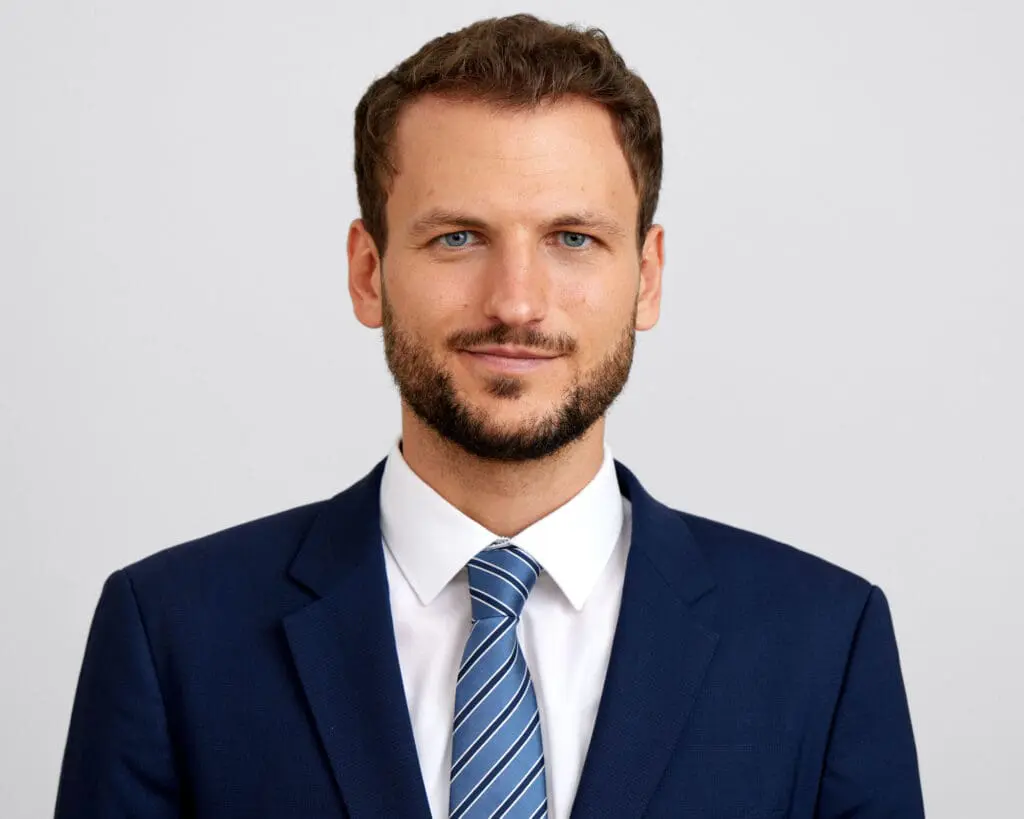Requirements for arrest or “detention”
Arrest is a means of criminal prosecution and involves the restriction of a person’s liberty for security purposes. It is a provisional measure aimed at preventing someone charged with a criminal offence from absconding or ensuring their immediate availability for questioning.
The following conditions must be met for an arrest to be made:
- Simple (reasonable) suspicion (Sec 170 para 1 Austrian Code of Criminal Procedure – StPO)
The primary prerequisite for arrest by the police is a simple, reasonable suspicion against the person to be arrested. Accordingly, the person must be suspected of having committed a criminal offence. It is sufficient for it to be obvious and more likely than not that the accused has committed a criminal offence. Therefore, a basic level of probability is enough to fulfil this prerequisite.
- Grounds for detention (Sec 170 para 1 no 1 – 4 StPO)
In addition to reasonable suspicion, at least one of the following grounds for detention must be present. Accordingly, the arrest of a person suspected of having committed a criminal offence is only permissible in the following cases:
- Caught in the act (no 1): This case is to be assumed if one is caught in the criminal act or immediately afterwards, and is either credibly accused of committing the offence, or found in possession of items indicating his involvement in the offence.
- Risk of absconding (no 2): This condition is met if one is fleeing or hiding, or if there is a risk that he will flee or hide based on certain facts.
- Risk of collusion (no 3): This requirement is fulfilled if one had attempted to influence witnesses, expert witnesses or co-accused, to remove traces of the offence or otherwise to impede the investigation of the truth. This condition is also met if there is a risk of someone attempting to do so based on certain facts.
- Risk of committing or carrying out the offence (no 4): This prerequisite is fulfilled if someone is suspected of an offence punishable by more than six months’ imprisonment and, based on certain facts, it can be assumed that he will commit a similar offence against the same legal interest or carry out the attempted or threatened offence of which he is accused.
The existence of at least one of these four grounds for detention is mandatory for a lawful arrest. In cases where the minimum sentence is ten years’ imprisonment, arrest must be ordered unless it can be assumed on the basis of specific facts that all grounds for arrest listed in Sec 170 para 1 no 2 to 4 StPO can be ruled out (Sec 170 para 2 StPO).
- Proportionality
Arrest may only be made if it is proportionate to the significance of the matter, the seriousness of the offence, the degree of suspicion and the desired outcome.
Order, maximum duration and procedure
The arrest shall be ordered by the prosecution authority on the basis of a court authorization and carried out by the criminal investigation department (Sec 171 para 1 StPO). However, the criminal investigation department is also entitled to arrest the accused on its own initiative if the suspect has been caught in the act or if, due to imminent danger, an order from the prosecution authority cannot be obtained in time (Sec 171 para 2 StPO).
In urgent cases, the police may make a provisional report by telephone. The public prosecutor may verbally apply to the judge for an arrest, who may then verbally provisionally approve it. The public prosecutor may also verbally provisionally order an arrest (Sec 102 StPO).
The accused must be taken to the detention centre of the competent court without unnecessary delay, but no later than 48 hours after arrest (Sec 172 para 1 StPO).
If the criminal investigation department arrests the accused on its own initiative, it must immediately question him about the matter, the suspicion and the grounds for detention (Sec 172 para 2 StPO). The interrogation of the accused is particularly crucial for the further course of the criminal proceedings. This situation often puts the accused under considerable pressure. Some suspects feel pressured to make a statement in this exceptional situation and sometimes provide information about the alleged offence without first consulting a defence lawyer. It is essential that arrested suspects know and exercise their rights (see below for more details).
The criminal investigation department has the option of deciding for itself, without first contacting the public prosecutor’s office, whether the conditions for further detention of the accused are met. Accordingly, it may release the accused without further conditions on its own initiative or on the instructions of the public prosecutor’s office, subject to less restrictive measures. If the criminal investigation department does not release the suspect, it must immediately transfer him to a correctional facility (Sec 172 para 3 StPO). The prosecution authority may also apply for the suspect to be remanded in pre-trial detention.
Rights of arrested suspects (Sec 171 para 3 StPO)
In addition to the classic rights of accused persons in criminal proceedings (e.g. access to files), arrested suspects have special rights, which are set out below.
The arrested suspect must be informed of their rights immediately or shortly after their arrest in a manner they can understand. This must include the following information:
- That, unless he is to be released, he will be taken to a correctional facility without unnecessary delay and brought before a court for a decision on his detention;
- That he is entitled
a. to inform a relative or other person of trust and a criminal defence lawyer of his arrest without delay or to ensure that they are informed accordingly. The accused must also be allowed to contact a “defence counsel on call” upon request.
b. to lodge a complaint against the court’s authorization of the arrest and, in addition, to apply for release at any time.
c. have his consular representation notified without delay.
d. to have access to medical care.
Tips during an arrest
If you are arrested, it is important to stay calm and avoid making any hasty statements. Accused persons have the right to remain silent.
You should immediately request legal assistance from a criminal defence lawyer and consult with him before making any statements. Anything you say to the police can be used against you. Being arrested is an extremely stressful and unfamiliar situation, accompanied by considerable psychological pressure and legal uncertainty.
In this exceptional situation, a criminal defence lawyer plays a key protective role: He ensures that the rights of the accused are protected, prevents any statements that could be used against the accused later, and verifies the legality of the arrest. He also acts as an interface between the accused and the investigating authorities, facilitating communication between both sides. In this tense situation, criminal defence lawyers offer not only legal support, but also essential guidance to protect their clients from adverse consequences.



